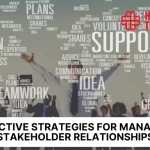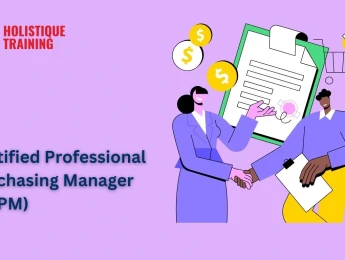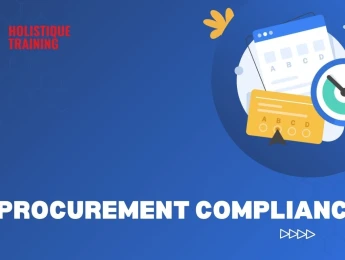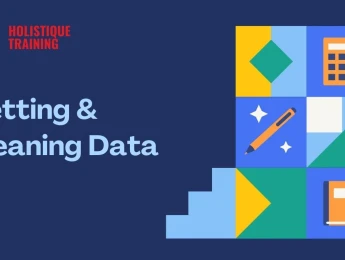Vendor relationships, partnerships, and stakeholders are huge in any business. They begin with solid communication, honesty, and mutually beneficial agreements to ensure everyone is happy with the relationship's progress.
It’s important to forge relationships with the right people and create contingency plans to ensure failures don’t detriment your organisation. A good vendor relationship will allow you to grow in tandem, solidifying your business’ future.
To create a good relationship, you’ll need to take time to understand the other company's goals, discuss supply chain management and how this benefits both parties and create effective communication channels to share problems and find fast resolutions.
Upon completion of this course, participants will be able to:
- Define a stakeholder in an organisation.
- Understand how important vendors are.
- Learn and develop skills for vendor relationships.
- Understand how to avoid negativity in relationships.
- Create an effective contingency plan if something goes wrong.
- Assess the risks with a vendor relationship and plan mitigation techniques.
- Manage perfect reviews of vendor relationships.
- Give feedback on issues and use problem-solving techniques to get what you need from each relationship.
This course is designed for people responsible for managing partnerships, stakeholder relationships, or any organisation's supply chain. it would be most beneficial for:
- Partnership Managers
- Account Managers
- Logistics Managers
- Senior Team Leaders
- Operations Managers
- Training Managers
- Senior Executives
- Directors
- Supply Chain Managers
This course uses various adult learning methods to aid understanding and comprehension. It consists of presentations that demonstrate effective communication and planning styles.
Participants will be presented with tools and techniques to aid effective negotiation. They will be instructed to perform role-playing exercises to gain buy-in from vendors and partners through their own influence while discussing risk areas and mitigating potential problems. Group exercises will help each participant understand what they need from a vendor relationship and help plan a strategic roadmap and forward-thinking goals specifically for their organisation.
Day 5 of each course is reserved for a Q&A session, which may occur off-site. For 10-day courses, this also applies to day 10
Section 1: Understanding Vendors
- The wider supply chain and the various technologies used to create it.
- Visually put into perspective your stakeholders with a strategic roadmap.
- Understand what qualities you are looking for in a vendor.
- Healthy communication with your vendor. What are you both looking for?
Section 2: How to be a Leader
- What are your priorities?
- Developing your leadership style.
- Create and effectively communicate your values and priorities.
- Building leadership skills and gaining the behaviour of a trusted authority figure.
- Build up staff morale and motivation.
Section 3: Working with the Vendor
- Set clear targets and goals for long- and short-term achievements.
- Discuss your ideal vendor performance.
- Delegate and manage with careful prioritising and thought-out planning.
- Use a needs and expectations analysis with your vendor, ensuring you are both on the same page.
- Reward good work and raise morale.
- Setting realistic expectations.
- Aim higher than originally anticipated with your vendors.
Section 4: Communication & Negotiating
- Creating healthy and open communication channels.
- Improve communication through feedback.
- How to handle confrontational negotiations or negative interactions.
- Use influencing and negotiation techniques to gain traction.
- Discuss and acknowledge compromise.
Section 5: Effectiveness of Vendors
- Creating scorecards and tracking your KPIs.
- Create an internal auditing framework to track your progress.
- Assess risk areas and present mitigation tools.
- When are preventative measures a waste of your time?
- Constructing an action plan for your future relationship.
- Setting goals for growth.
Section 6: Reviewing Your Progress
- Assess current SLAs.
- Where could improvements be made?
- Meeting and discussing future strategic goals.
- Aligning your goals with other organisations.
Upon successful completion of this training course, delegates will be awarded a Holistique Training Certificate of Completion. For those who attend and complete the online training course, a Holistique Training e-Certificate will be provided.
Holistique Training Certificates are accredited by the British Assessment Council (BAC) and The CPD Certification Service (CPD), and are certified under ISO 9001, ISO 21001, and ISO 29993 standards.
CPD credits for this course are granted by our Certificates and will be reflected on the Holistique Training Certificate of Completion. In accordance with the standards of The CPD Certification Service, one CPD credit is awarded per hour of course attendance. A maximum of 50 CPD credits can be claimed for any single course we currently offer.
- Course Code PO1-111
- Course Format Classroom, Online,
- Duration 5 days













